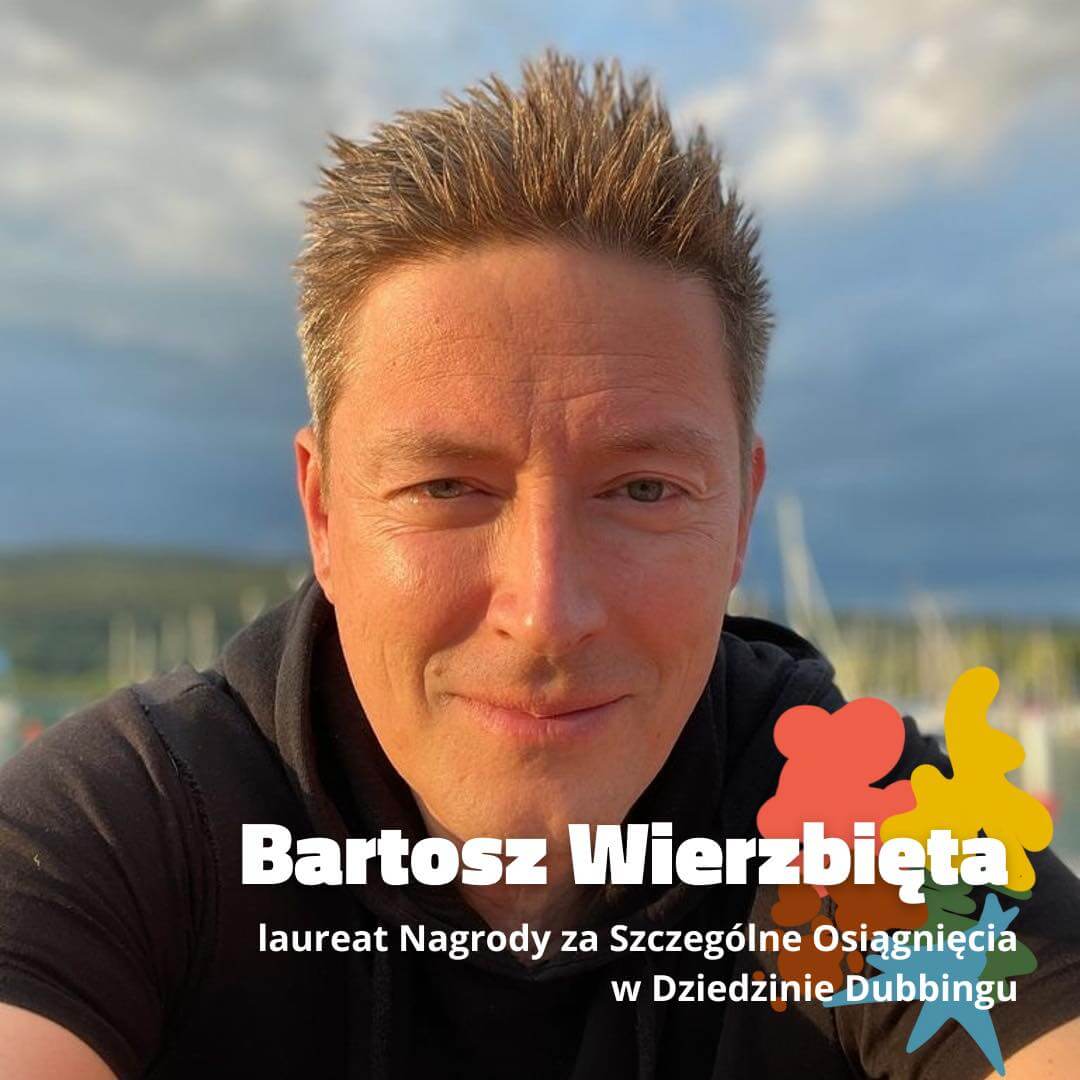


- Movies are not made to teach. That's not why people go to the cinema. You go to the cinema to laugh, to be moved, or to be scared. Dubbing should serve that purpose, not language learning. Perhaps that's what schools should focus on - ponders Bartosz Wierzbięta, a Polish translator, dialogue writer, dubbing director, and musician, who will receive our Special Achievement Award in Dubbing this year.
The ANIMOCJE Festival Award for Bartosz Wierzbięta.
It all began with surveys... and user manuals (like for hairdryers)! However, it is officially acknowledged that Bartosz Wierzbięta started his career as a translator by translating documentary films for the Planete channel. Nevertheless, he is best known to the wider audience as the creator of dialogues for the Polish versions of animated films such as "Shrek," "Shark Tales," "Madagascar," "Chicken Little," as well as the computer game "Rayman 3." However, those titles being better known to the wider audience, doesn’t always apply! In one interview, he was asked if he has ever tried to get out of a ticket with "Shrek":
- I only tried once, but it turned out that the policeman and I live in different realities - Bartosz Wierzbięta replied, clearly amused. - He stopped me for not turning on the lights. "Do you have a job?" / "Yes, I'm a translator-dialogue writer." / "Where can we hear your dialogues?" I thought it was better to mention "Shrek" than "The Return of the Gnu Antelope" from Planete. I was wrong.
We, as the festival team, assume that such mistakes in Bartosz's life are somewhat episodic. The list of films translated by him - both animated and live-action - over the past thirty years is impressive and ranges around hundreds. Additionally, his achievements as a dubbing scriptwriter and director should be taken into account. Suffice it to say that he knows his craft, both theoretically, as a graduate of the Institute of Applied Linguistics at the University of Warsaw, and - perhaps above all - practically.
- Poles' aversion to dubbing mainly stems from experiences with poor TV dubbing - explains our guest in another interview. - It should be emphasized that TV dubbing is a completely different field than dubbing for feature films. Some TV stations also tried to dub live-action films and series in the early 1990s. The result of this was often poor.
Wierzbięta is aware that different cultures have their own idiosyncrasies, different jokes, different witticisms that are understandable only to a specific group of viewers. He knows that translated dialogues must be understandable to the Polish audience, so in many situations, they should significantly differ from the original version. Evidence of the correctness of this approach is his most famous translation - precisely for the aforementioned film "Shrek" from 2001. In the original version, this film contained many funny references to American popular culture. Wierzbięta's task was to adapt them so that they would refer to something equally amusing to the Polish audience. Therefore, in the Polish version of the film, there were, among others, allusions to the characters Zwirki and Muchomor from the Polish animated series, the movie "Sexmission," and to the song „Śpiewać każdy może” by Jonasza Kofta, which was sung by the voice of Donkey, Jerzy Stuhr, during the festival in Opole in 1977. Undoubtedly, it was the tremendous success of "Shrek" that contributed to the increasing popularity of Polish dialogues in animated films.
Bartosz Wierzbięta will receive our Special Achievement Award in Dubbing on Sunday, April 14th at 5:00 PM at Music Cafe Szpulka (MCK Bydgoszcz). The meeting will be hosted by Jarosław 'Jarry' Jaworski.